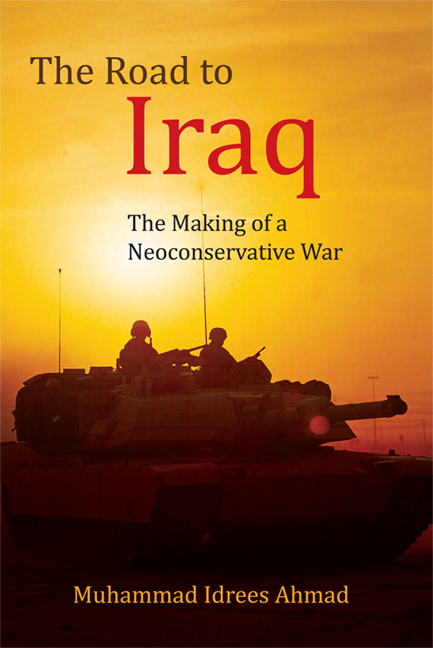1 - Black Gold and Red Herrings
from Part 1 - The Argument
Published online by Cambridge University Press: 05 August 2016
Summary
Journalists and scholars have frequently treated the Iraq war as the outcome of a coherent strategy rooted in a consensual elite, national or class interest. The explanations are often mono-causal: oil, imperialism, militarism, Israel, democracy promotion and the demonstrative use of power. But these are not mutually exclusive propositions. Each played some part in the calculus of decision makers, though not all are equally significant. Key actors were not driven by the same motives, nor did they reach their decisions simultaneously. Some had been committed to regime change for years, others embraced it after 9/11; still others accepted it after the war had become inevitable. Bush, Cheney and Rumsfeld were the war's chief executors, but they embraced its logic long after the neoconservatives first conceived it. They would not have had their war without the neoconservatives’ enabling role. Chronology and function are significant. Some polemics have focused on the Oedipal roots of Bush's Iraq fixation, but this may only explain why advisers found it easy to persuade him of a war already conceived. Most in the administration shared an aversion for Saddam Hussein, but only a few saw war as the preferred means for toppling him. All these factors offer at best a partial explanation for the war and fail to address its determinative causes.
Oil
If Iraq was invaded for oil, then the US was remarkably negligent in securing the prize. In 2006, the new Iraqi government was already reviving Hussein-era deals with China. In late 2009, with over 200,000 US troops and mercenaries present, Iraq awarded its first major post-war oil concessions – and the biggest winners were Norway, France, China and Russia. Of the eleven contracts signed, only one was secured by a US company, Exxon Mobil, as part of a consortium with Royal Dutch Shell. By November 2011, Exxon too was in negotiations with Shell and Russia's Lukoil to sell its shares. Exxon's attempt to sign a separate contract with the Kurdish regional government in 2011 was peremptorily rejected by the Iraqi central government. The only sector in which US companies triumphed was oil services – but in that sector the US has always enjoyed a virtual monopoly, invasions or no.
- Type
- Chapter
- Information
- The Road to IraqThe Making of a Neoconservative War, pp. 18 - 34Publisher: Edinburgh University PressPrint publication year: 2014

